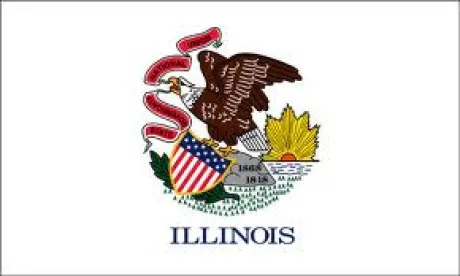On February 3, 2022, in a much-anticipated opinion, the Illinois Supreme Court held that the Illinois Worker’s Compensation Act does not bar claims against employers under the Illinois Biometric Information Privacy Act (“BIPA”). This decision forecloses another defense that in BIPA cases since the statute has been the subject of relentless litigation beginning 2019.
In the case, McDonald v. Symphony Bronzeville Park, LLC, the plaintiff sued asserting various BIPA violations when the defendant allegedly failed to obtain written releases from its employees with respect to the collection, use and storage of biometric information, failed to inform the employees that biometric information was being collected, failed to provide a written retention policy, and failed to inform them in writing of the purpose and length of time for which their biometric information was being collected, stored and used. In response to the complaint, the defendant filed a motion to dismiss asserting that the exclusive remedy provisions in the Worker’s Compensation Act barred the claims.
The Circuit Court of Cook County, Illinois rejected the defendant’s argument holding that the plaintiff’s injury involved the loss of the ability to maintain privacy rights, which was not an injury compensable under the Worker’s Compensation Act. A panel of the intermediate appellate court also concluded that the exclusive remedy provisions in the Worker’s Compensation Act do not bar a claim for statutory damages under BIPA. Following the appeal, the defendant petitioned the Illinois Supreme Court for review. The Illinois Supreme Court held that the Worker’s Compensation Act exclusivity provisions do not bar an employee’s claim for statutory damages under BIPA. The plaintiff is permitted to pursue her BIPA claims in Circuit Court rather than through the Worker’s Compensation Commission because the alleged injury was not one that categorically fits within the Worker’s Compensation Act. In other words, the lawsuit is not preempted by the exclusive remedy provisions of the Worker’s Compensation Act.
In deciding the case, the Illinois Supreme Court discussed at length the statutory language of BIPA and the Worker’s Compensation Act. It also considered prior decisions of that court as well as appellate courts concerning the scope of the Worker’s Compensation Act and injuries that might be compensated under it. Ultimately, the court concluded that an injury to privacy rights for which the plaintiff seeks liquidated statutory damages under BIPA is not an injury that the Worker’s Compensation Act contemplates. As the court interpreted it, the Worker’s Compensation Act’s main purpose is to provide financial protection for injured workers until they can return to work. That is, the injuries that affect an employee’s capacity to perform employment-related duties are the types of injuries that the Worker’s Compensation scheme was designed to compensate.
On the other hand, the injuries caused by violating BIPA are different in nature and scope from the physical and psychological work injuries compensable under the Worker’s Compensation Act. According to the Illinois Supreme Court, the Circuit Court correctly reasoned that the plaintiff’s loss of the ability to maintain her privacy rights was not a psychological or physical injury compensable under the Worker’s Compensation Act. Likewise, the court found the appeals court had correctly ruled that a BIPA violation is not the type of injury that categorically fits within the purview of the Worker’s Compensation Act and is thus not compensable under that Act. The court also found that BIPA’s statutory language supports the conclusion the legislature did not intend BIPA would be preempted by the Worker’s Compensation Act. To that end, the court stated that the legislature was aware that BIPA claims could arise in an employment context yet treated them identically to non-employee BIPA claims (except as to permissible methods of obtaining consent). Accordingly, the text of BIPA is further evidence the legislature did not intend for BIPA claims to be presented to the Worker’s Compensation Commission. Notably, the Supreme Court mentions that the potential consequences that may be brought upon employers in the State of Illinois are significant. However, the court believed that the balance to be struck under BIPA given the category of injury is more properly addressed to the legislature rather than the courts.
Finally, in a concurring opinion, one justice stated he also believed that, because the plaintiff had not suffered a physical or emotional injury, the Worker’s Compensation Act did not apply. In particular, the justice recognized that the plaintiff had withdrawn and amended her complaint to remove allegations that she had suffered mental anguish or other actual damages. Instead, she was pursuing statutory damages alone for the BIPA violations.
The McDonald opinion highlights the need for companies to follow BIPA’s prophylactic requirements. The potentially substantial and catastrophic penalties that the statutory damages provision of BIPA permits appear likely to continue to result in more litigation until, as the court referenced, the Illinois legislature takes some action to lessen the impact on businesses.



 />i
/>i
